Five years after 9/11, the President has not shown the basis for his determination that Bin Laden and Al Qaeda are responsible for 9/11, and has expanded the use of force beyond the scope authorized by Congress immediately after 9/11.
Congress should revoke the "Authorization for Use of Military Force" and re-address the issue. This should have no effect on the war in Iraq, which is pursuant to another Congressional resolution.
At Consortium News, Robert Parry writes:
'[T]he war against “terrorist groups of global reach,” which became the “global war on terrorism,” now has morphed into what might be called the “global war on radicals and extremists,” a dramatic escalation of the war’s ambitions with nary a comment from the U.S. news media.'
Parry points out that the word "terrorism" was already expansively used:
'[I]n the sloppy vernacular of the U.S. press corps, the word “terrorism” came to mean any violent act that officials in Washington didn’t like, a kind of geopolitical curse word.'
And he warns that the definitions of "radical" or "extremist" are even looser.
http://www.consortiumnews.com/2006/122206.html
Parry is correct, but I would take it back one morph further: the "war against the terrorists directly involved in the 9/11 attacks" authorized by legislation in September 2001 soon became the "war against terrorists of global reach," and expanded from there.
A year ago, the Congressional Research Service published a legislative history of the Authorization for Use of Military Force in Response to the 9/11 Attacks (P.L. 107-40).
http://www.fas.org/sgp/crs/natsec/RS22357.pdf
This legislative history shows that Congress specifically rejected much broader language sought by the White House: "and to deter and pre-empt any future acts of terrorism or aggression against the United States."
Five years later, Congress should revoke this resolution and decide if another resolution is necessary, and what the limits of Presidential authority should be.
The resolution authorized the President to use necessary and proper force against those nations. organizations, or persons he determines planned, authorized, committed, or aided the terrorist attacks that occurred on September 11, 2001, or harbored such organizations or persons.
I would like to see the President's determination of which nations. organizations, or persons planned, authorized, committed, or aided the attacks of September 11, 2001, and the basis for that determination.
A determination implies a judgment and decision after weighing the facts. Show us the facts, so we can evaluation your judgment and decision.
Secretary of State Colin Powell promised shortly after 9/11 to produce a white paper showing that Bin Ladin was responsible for 9/11, but never did. Instead, Tony Blair issued a conclusory White Paper with the typical claim that sources cannot be revealed to protect their safety.
http://www.ratical.org/ratville/CAH/linkscopy/page3554.html
Law professor Francis Boyle call this the 'Powell/Bush White Paper," and states:
"Obviously, Blair was acting as Bush Jr.'s surrogate or, as the British press routinely referred to him, “Bush's pet-poodle”. Tony Blair is neither an elected nor an appointed official of the U.S. government, not even an American citizen. Conveniently, no American official could be brought to task for or even questioned about whatever errors or inadequacies he might purvey."
Professor Boyles states that the "Blair/Powell White Paper" was widely derided in the British press, but not here.
http://www.ratical.org/ratville/CAH/911summary.html
Is it too much to ask the President to show the facts on which he determined which organizations and persons are responsible for 9/11? That means facts, not claims.
------------------------------
Appendix
The language proposed by the White House that was rejected by Congress remained in part in the preamble, unfortunately, and even expanded the word "pre-empt" to "prevent":
Whereas the President has authority under the Constitution to take action in order to deter and prevent acts of international terrorism against the United States;
and this was stated again in the Iraq resolution:
Whereas the President has authority under the Constitution to take action in order to deter and prevent acts of international terrorism against the United States, as Congress recognized in the joint resolution on Authorization for Use of Military Force (Public Law 107-40)
The legal effect of preambles and the extent of presidential authority where Congress has spoken are complex issues, but even assuming that this broader authority was granted, Parry's point remains sound, as this preamble might account for a war on "terrorist groups with a global reach" that places the United States at risk, but not a global war on terrorism and surely not a global war against radicals and extremists.
If you know someone has a history of alcohol abuse, it is prudent not to urge a drink on that person, even if the person might be fine with it. In the same way, if you know a president has a history of authority abuse, it is not prudent to encourage that behavior with a "whereas" clause.
Therefore, Congress should leave out this "whereas" clause in any new resolution. If indeed the Constitution recognizes the authority claimed by the White House, it should not need to be stated in legislation. Congress should not be complicit in the debasement of its own authority.
Tuesday, January 2, 2007
Subscribe to:
Post Comments (Atom)

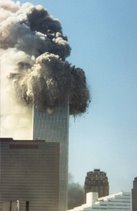

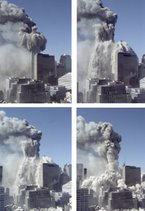

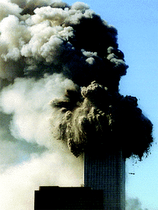

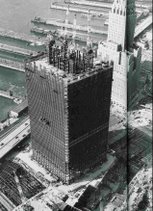
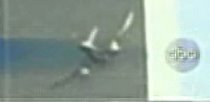
No comments:
Post a Comment